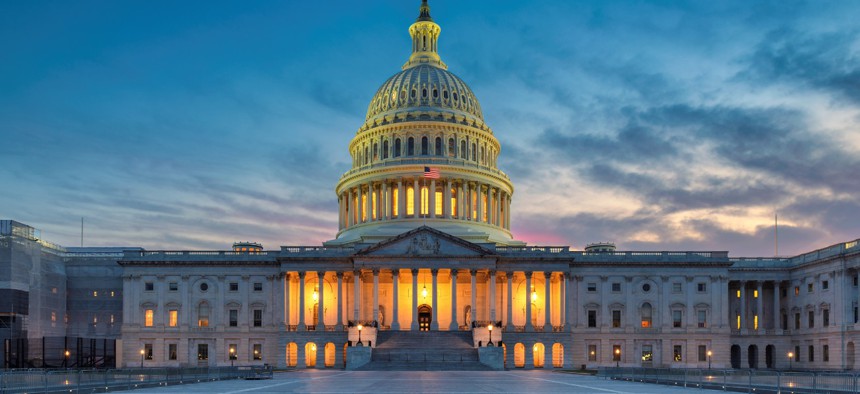
lucky-photographer / istock
Senate Has Passed Three Resolutions to Undo ‘Midnight’ Trump Regulations
Thursday is the estimated deadline for the Senate to use its fast-track authority under the Congressional Review Act.
Ahead of an estimated Thursday deadline to use special fast-track authority, the Senate has passed three resolutions to undo last minute or “midnight” regulations established by the Trump administration.
Under the 1996 Congressional Review Act, lawmakers can introduce resolutions to undo regulations imposed by the previous, outgoing administration during a certain look-back period.
Democrats introduced six such resolutions between March 23 and April 1 targeting regulations at the Equal Employment Opportunity Commission (on conciliation procedures); Environmental Protection Agency (on methane emissions); Treasury Department (on true lenders); Securities and Exchange Commission (on procedural requirements for shareholders); Health and Human Services Department (on sun-setting regulations); and Social Security Administration (on appeals judges).
As of Thursday, the Senate had passed only the EPA, OCC and EEOC resolutions and has yet to take up the SEC resolution. Only the HHS and SSA resolutions have been introduced in the House.
Thursday “is the last day for the Senate to pass any joint resolutions using the filibuster-proof provisions of the #CongressionalReviewAct,” a tracker from Pillsbury Law pointed out on Wednesday. “The Senate has thus far passed three bills of the six introduced. During the same window of the Trump administration, the Senate had passed 14.”
The House has not yet voted on any of the resolutions, but there aren’t specific timeframes for it to do so. E&E News reported earlier this week that a vote in the House on the methane emissions rule could be several weeks away.
“The CRA statute prevents federal agencies from issuing a rule that is ‘substantially the same’ as a disapproved rule,” a House Democratic leadership aide told E&E News. “EPA wants [the committee] to provide legislative history to define what the ‘substantially the same’ replacement rule prohibition means so they can go forward with a new rule.”
Public Citizen, a consumer advocacy group, reasserted its stance in a press release on Wednesday that the act is “still not a good law” because “it’s confusing, open to misinterpretation and favors deregulation over advancing public protections.”
The group argued that Congress should reexamine the law and reconsider legislation introduced in the past that would repeal it. “Given all the talk about whether to keep the filibuster, it is worth reconsidering the wisdom of having a carve-out from the filibuster that asymmetrically favors one political party over the other.”
William Yeatman, research fellow at the Cato Institute who focuses on administrative law, constitutional structure, and regulatory reform, told Government Executive on Thursday while he doesn’t necessarily support the policy outcomes the Democrats are seeking, “I nonetheless support these efforts” to use the act because “it’s a very important mechanism by which Congress competes with the presidency for management of the administrative state.”
The law can benefit whatever party is in power, but in the years after it was passed in 1996 it got “branded as a deregulatory device that is only embraced by conservatives.”
When asked how he’d reform the law, he suggested getting rid of the time constraint for the Senate to use the fast-track authority.







